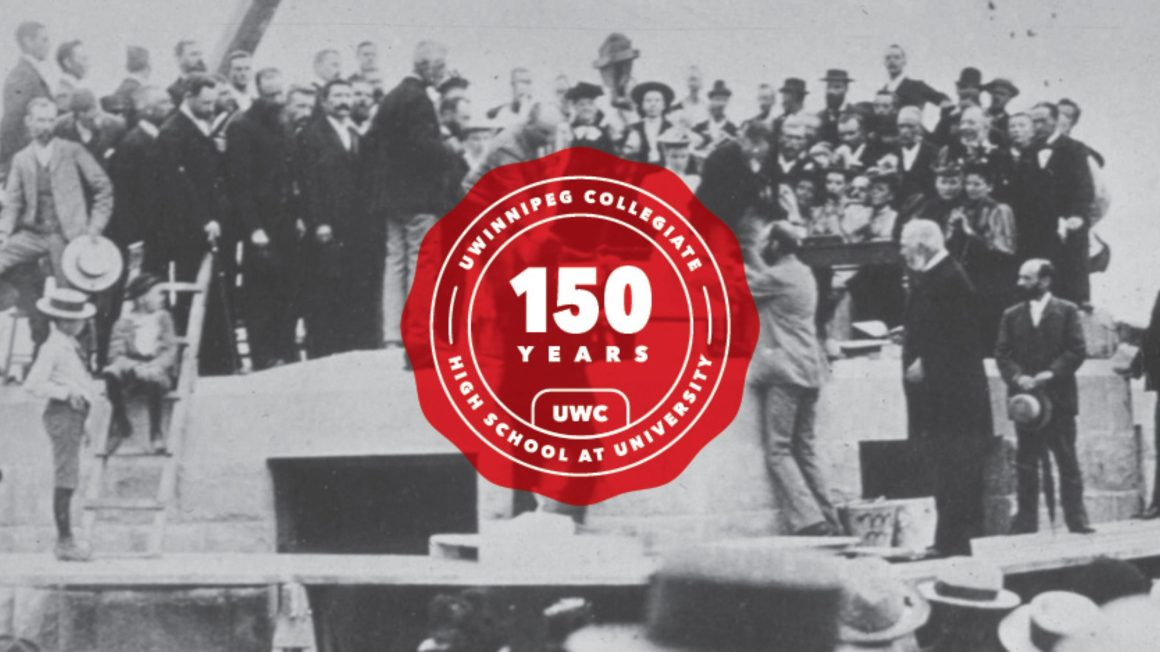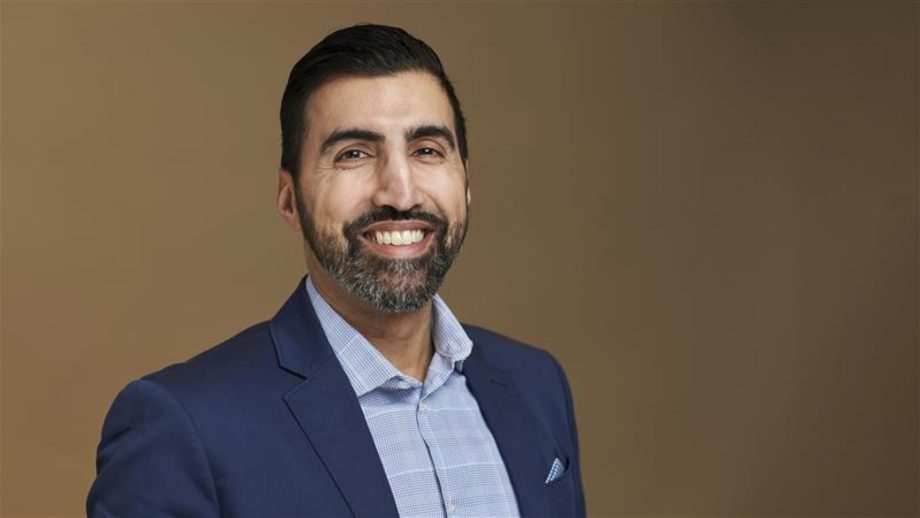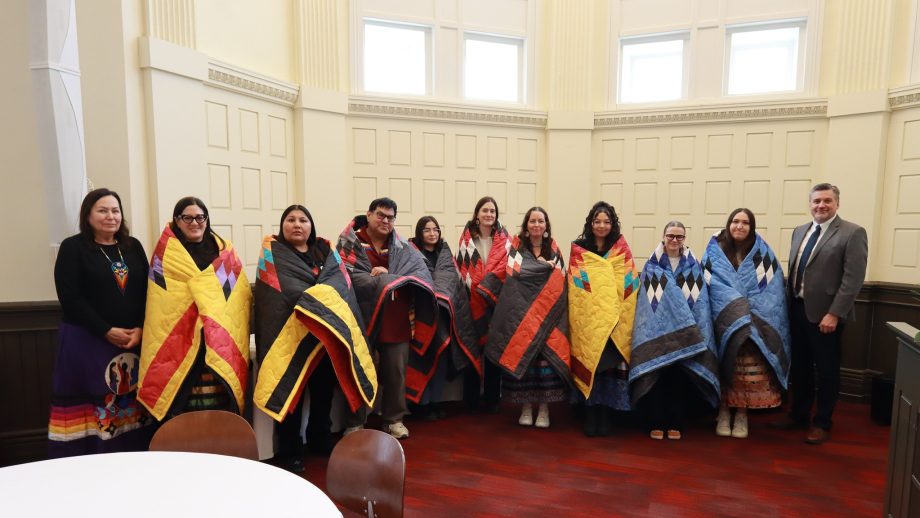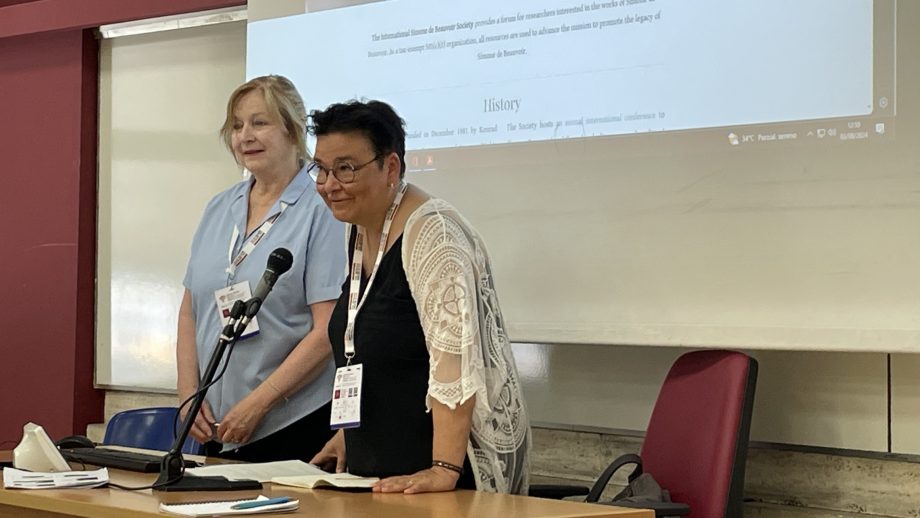It’s housed within the iconic Wesley Hall, is one of only three institutions of its kind in Canada, and has produced countless outstanding alumni. And this fall, The University of Winnipeg Collegiate will celebrate a remarkable milestone: its 150th anniversary.
The Collegiate has stayed relevant and ebbed and flowed through societal, educational, and institutional changes, and continues to remain an outstanding institution for preparing students for their futures.
Kevin Clace
To mark the occasion, alumni, faculty, staff, students, and a host of special guests will congregate at Wesley Hall for ceremonies and performances by some notable Collegiate alumni during Homecoming 2023, which takes place on UWinnipeg’s downtown campus from September 19 to 21. The celebration comes only a short while after the formal recognition of the Collegiate’s anniversary by the Manitoba Federation of Independent Schools.
Dr. Kevin Clace, Dean of the Collegiate, says the 150th anniversary is more than just an opportunity to celebrate an extraordinary achievement.
The anniversary, he noted, is a signifier of the institution’s ability to adapt and change, and its desire to continue finding new and innovative ways to engage students of all backgrounds, as well as a testament to its past, present, and continuing importance in the community.
“For a school to go through so many different generations and iterations of society and remain relevant is unique,” said Clace. “To me, that’s the most special part of the story. Yes, we’ve been a high school for 150 years, but through significant societal change, the Collegiate has remained a very relevant organization, one students still seek to get prepared for the next steps in their education.”
A storied history
Though now most associated with Wesley Hall, the Collegiate’s roots date back to 1873 and the establishment of the Wesleyan Educational Institute, a preparatory school operated by the Methodist church until 1877. Though that institution would ultimately shutter in 1877, the Manitoba Legislature did that same year pass an act to incorporate Wesley College, which officially opened its doors in 1888 and began welcoming preparatory students under principal Dr. J.W. Sparling.
The steady growth of Wesley College across the next five decades laid the foundation for the construction of Wesley Hall, providing space and opportunity for the student body to grow. By 1913, Wesley College and Manitoba College entered into an experimental partnership, one which became formal by 1931 and led, in 1938, to the subsequent formation of United College, which would become The University of Winnipeg upon receiving its charter in 1967.
Throughout this transition, the institution continued to welcome preparatory students since undergoing expansions of its own. First, in 1997, the Collegiate opened its doors to Grade 10 students to become a full high-school program. Ten years later, Grade 9 students were welcomed as the Collegiate became the academic partner for the Royal Winnipeg Ballet’s professional division. These changes allowed the Collegiate to grow to its present-day size, which sees it welcome more than 400 students annually.
Partnerships, such as those with the Royal Winnipeg Ballet and Manitoba Conservatory of Music and Arts, have shaped the offerings available to Collegiate students, as have relationships with the Winnipeg Symphony Orchestra, Manitoba Theatre for Young People, Virtuosi, and Royal Manitoba Theatre Centre.
The Model School
And it’s through its thoughtful approach to programming, the Collegiate has not only stood the test of time, but thrived. There is no greater example of how the Collegiate has embraced change and found ways to open its doors to students than the Model School.
Developed in collaboration with former UWinnipeg President Dr. Lloyd Axworthy, Kevin Chief, and Collegiate Administration, the Model School launched in 2008 and has, for 15 years, provided equity-deserving students with the opportunity and support necessary to graduate from high school and prepare for post-secondary education.
More than 60 students from grades nine through 12 participate in the program each academic year, and 130 Model School students have graduated to date. Nearly 90 per cent of Model School students graduate and more than 80 per cent pursue post-secondary education, figures that are virtually unmatched among programs of its nature, Clace said.
Advancing Reconciliation
The Model School and its success is just one way the Collegiate has pursued its goals of making a positive impact on the community, which has since its establishment been part of the institution’s ethos. That has been apparent in the Collegiate’s longstanding commitment to Reconciliation, as well.
The Collegiate has provided education on Reconciliation since the 2016-17 academic year, inspired by the Truth and Reconciliation Commission of Canada’s Calls to Action. It is through its community-minded and critical-thinking approach to education that the Collegiate has become a leader in education in the province.
As the Collegiate prepares to celebrate its 150th anniversary, too, it will begin its ceremonies with a land acknowledgment followed by a blessing by Elder Linda Chisholm. But prior to the Collegiate’s ribbon-cutting ceremony, Chisholm will return to provide a second blessing, said Clace, this time to launch the institution into its next chapter.
“The Collegiate has stayed relevant and ebbed and flowed through societal, educational, and institutional changes and continues to remain an outstanding institution for preparing students for their futures,” said Clace. “But as we do that, we also want to recognize there’s more we can do as it pertains to Reconciliation. I’m looking forward to seeing us launched into the future for the next 150 years with Reconciliation as a guiding principle.”





